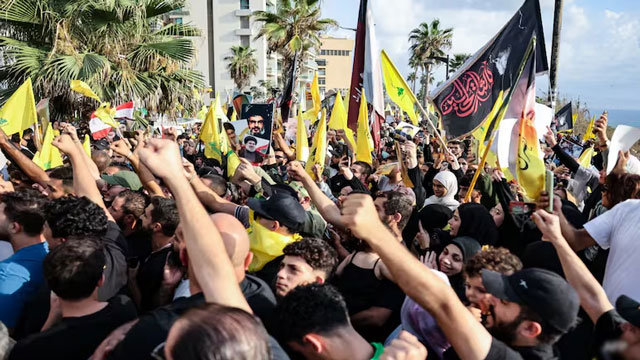Daijiworld Media Network - Washington
Washington, Oct 3: In a significant move aimed at bolstering Lebanon’s stability, the administration of US President Donald Trump has approved $230 million in aid for the country’s security forces, sources in Washington and Beirut confirmed this week.
According to a Lebanese official familiar with the development, the package includes $190 million for the Lebanese Armed Forces (LAF) and $40 million for the Internal Security Forces (ISF). The funding was reportedly cleared just before the close of Washington’s fiscal year on September 30.

“For a small country like Lebanon, that’s really, really significant,” remarked a Democratic congressional aide during a media briefing, speaking on condition of anonymity.
The U.S. State Department declined to comment on the move, which comes despite the Trump administration’s policy of cutting back on foreign aid under its “America First” approach. Analysts see the funding as a reflection of Washington’s renewed priority to address the ongoing conflict in Gaza and the broader Middle East.
Lebanon has been reeling from a year-long conflict with Israel, which has weakened the once-powerful militant group Hezbollah and left large parts of the country devastated.
In a bid to strengthen state authority, President Joseph Aoun and Prime Minister Nawaf Salam had tasked the U.S.-backed LAF on August 5 to formulate a plan ensuring that all weapons in the country would be brought under the control of national security forces by the year’s end.
While Hezbollah — an Iran-backed organisation — has resisted calls to disarm since its destructive war with Israel, it now faces mounting pressure both from domestic political rivals and from Washington to relinquish its arsenal.
The Lebanese source added that the newly released U.S. funds would enable the ISF to assume responsibility for internal security, thereby allowing the LAF to focus on other critical missions, including border defence and counterterrorism operations.
The decision underscores Washington’s continued influence in Lebanon’s security landscape amid efforts to curtail the power of Hezbollah and stabilise the war-torn nation.